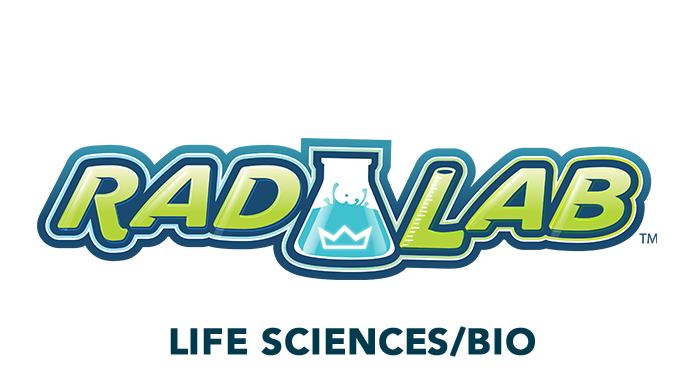
Rad Lab and South Carolina: A Life Science Workforce Development Success Story
Philosopher Ludwig Wittgenstein once said that “if people never did silly things, nothing intelligent would ever get done.” Creating space for imaginative fun can create new pathways for thought and lead to intellectual epiphanies. Judging by the steady stream of research breakthroughs, life-changing innovations and innovative out-of-the-box workforce development solutions from South Carolina’s life science industry, there is true wisdom to be found in Wittgenstein’s words.
A Vulnerable Talent Pipeline
Life Sciences is one of the fastest-growing sectors in the world, yet despite being a leading contributor to the economy, the entire industry is currently in the midst of a middle-skills talent shortage. Lack of awareness among the general population, including educators, regarding what life science actually is, let alone the pathways to pursue one of the hundreds of careers available, is arguably the biggest culprit. South Carolina has felt this pain acutely over the last decade, as life sciences represents the state’s fastest growing industry with over 1,000 firms across the state, 87,000+ employees and $25.7B of annual economic impact. However, gaps in skilled talent have continued to persist, despite there being enough people to fill them.
In response to this talent gap, South Carolina’s life science organization, SCbio, decided to try something radically different to eradicate their industry members’ pipeline woes. In a game-changing move, SCBio sponsored the deployment of a life science ‘career’ mobile video game, state-wide, developed to disrupt traditional career awareness methods, simply by leaning into the engagement habits of South Carolina’s future talent pool they’re trying to attract.

Playing the Fields
Because traditional career awareness and talent attraction efforts like job fairs, websites and career videos are typically one-and-done experiences, they provide little access to a future candidate’s career-relevant skill set or mindset. They also suffer from lack of scalability. Today, playing video games accounts for more time spent than any other medium for Gen Z, including music, videos and social media.
By leveraging the gaming principles of competition, skill-building, and rewards to attract, engage and even recruit future talent, Rad Lab, the free-to-play life science career game, allows middle- and highschoolers to try jobs on, engage in a local hiring company’s brand, and gain access to regional educational pathways before they’ve chosen another path.
Industry Weighs In
Skilled talent is in high demand across multiple sectors within a state, making the competition steep in fighting for talent from the same pool. This can also contribute to a high attrition rate based on a hiring mindset of quantity over quality in order to fill as many empty roles as they can. With little exposure to industry-specific job conditions prior to accepting a position, up to half of new hires won’t complete their training due to misaligned expectations.
As a safeguard against this, skillsgapp invited SCBio’s industry members to weigh in on key job expectations that could be gamified in an effort to yield a more vetted pool of players to potentially recruit from.
5 In-game Realistic Job Previews (RJP’s) included in Rad Lab:
- Gowning - Players simulate hand-washing and gowning in R+D and QA levels
- Safety/SOPs - Players follow specific instructions to comply with FDA regulations
- Cleanroom - Players comply with contamination protocol
- Calculation/Conversions - Players convert decimals and round numbers
- Accuracy - Players must correctly record order numbers
In-Game Environments
In order to accommodate all sectors within life sciences, including medical device, pharmaceuticals, manufacturing and logistics, Rad Lab consists of three playable environments to simulate careers available in:
- Lab & R+D
- Manufacturing Facility
- Logistics & Distribution Center
- Players are tasked with missions in each setting, from FDA compliance and testing, to quality assurance, packing and shipping, all in an effort to get life-saving pharmaceuticals and devices to those who need them most.
- Avatars are DEI-intentional with a focus on under-served populations.
- Mini-games are deployed to nurture STEM-related principles with the ability to earn industry-inspired badges upon mastery.
- Along the way, players are fed what job they just performed, its salary, pathways and certifications to pursue, and, finally, companies hiring for those skills they’ve just demonstrated.
South Carolina Deployment
Life Science companies are present in 42 of the 46 South Carolina counties, each with unique needs and feeder programs from over 60 colleges, from both two- and four-year institutions.
- Skillsgapp customized in-game content to reflect the state’s most-needed talent, including local pathways and companies hiring based on the player’s region.
- Companies and colleges had the option to market in- and out-of-game, based on their needs.
- Engagement included youth aged 13 - 22+, with a focus on underrepresented/underserved communities through media, community outreach, K12, and afterschool programs.
_____________________________________________________
Results from the First Year Beta Launch:
- 6,000+ players and counting
- Average 8 minutes of play time per session
- Average 1 session per day / 2.5x per week
- Recall 100 life/health science and STEM terms, job descriptions and salaries through badge completion
- Identification of 40 localized courses and pathways to further pursue life and health science education or employment
- Completion of 6 industry- and STEM-related proficiencies through game completion
Key Findings:
- Over 80% of players went from not having any idea what Life Science was, to knowing it is about making products for healthcare.
- Same percentage learned that you don't have to be a scientist to work in life science.
_____________________________________________________
If your state is feeling the sting of skilled talent shortages in life sciences, amplify your company’s brand or post-secondary pathway in Rad Lab, customizable per region.